EEM News Database
Use the search engine below to jump to specific issues by date, or to specific articles by keyword search.
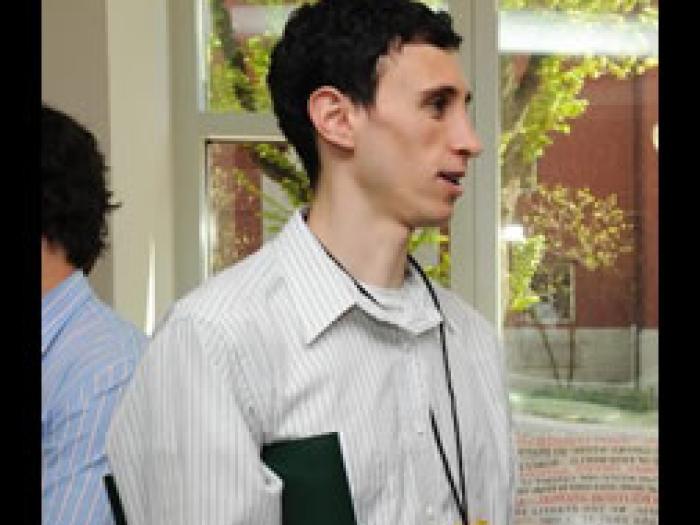

Chrisie Kjelland Studies in Korea on FLAS Fellowship
November 11, 2010
Chrisie Kjelland Studies in Korea on FLAS Fellowship

DOE Solar Decathlon Held on National Mall
November 11, 2010
DOE Solar Decathlon Held on National Mall
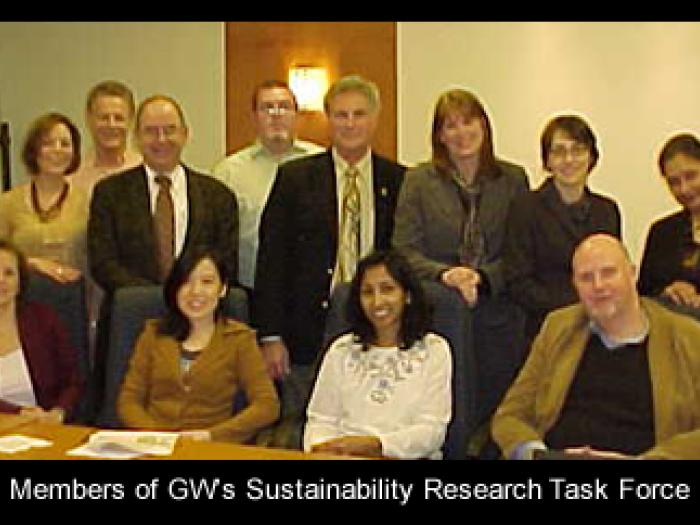
GW Undertakes New Initiative in Urban Sustainability Research
November 11, 2010
E&EM Lead Professor Jonathan Deason served on a University-wide Sustainability Research Task Force in late 2009 and early 2010. The Task Force, composed of a multidisciplinary faculty committee drawn from seven GW schools, prepared a strategic plan to launch a GW Sustainability Research Initiative. The objective of the Initiative is to advance the quality and quantity of sustainability-related research, policy and management at GW by organizing cutting-edge research and integrating applied areas of urban sustainability research.

E&EM; Graduate Student Serves at Council on Environmental Quality
November 11, 2010
E&EM; Graduate Student Serves at Council on Environmental Quality
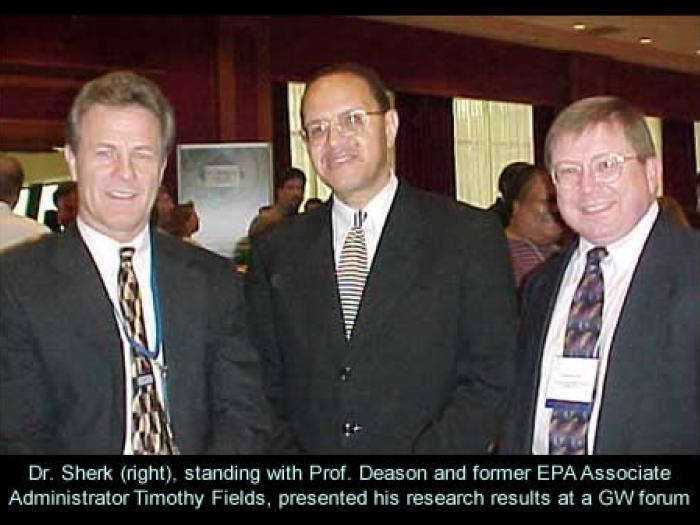
E&EM; Grad Named CERI Managing Director
November 11, 2010
George William (Jerry) Sherk was appointed Managing Director of the Colorado Energy Research Institute at Mines in March 2010.

EEM Professor Participates in Climate Change Symposium
November 11, 2010
EEM Professor Richard Cothern participated in a symposium entitled "The Next Big North American Climate Issue?: Sustainability Impacts of The Canadian Tar Sands Development," sponsored by the GW Institute for Sustainability Research, Education, and Policy on April 13, 2010.

Recent News of E&EM; Grad Students and Graduates
November 11, 2010
Recent News of E&EM; Grad Students and Graduates

EEM Grad is Front and Center on Gulf Oil Spill
November 11, 2010
2008 EEM graduate Lieutenant Commander Dan Somma is serving as the U.S. Coast Guard’s Shoreline Group Supervisor for Grand Isle, Louisiana in cleaning up British Petroleum’s historically large Gulf of Mexico oil spill.
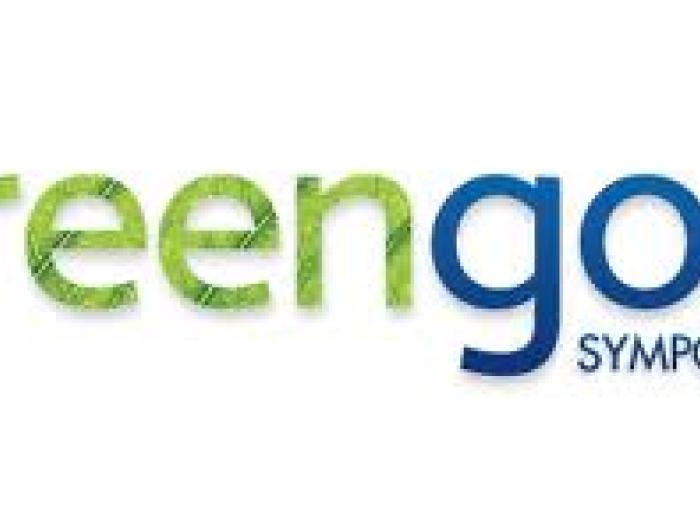
White House Holds Green Government Conference at GW
November 11, 2010
The White House Council on Environmental Quality (CEQ) has selected GW to host an educational conference call the GreenGov Conference for 500-700 Federal employees from around the country. The conference, which is being managed by the Office of Sustainability, will be held on October 5, 6 and 7, 2010.
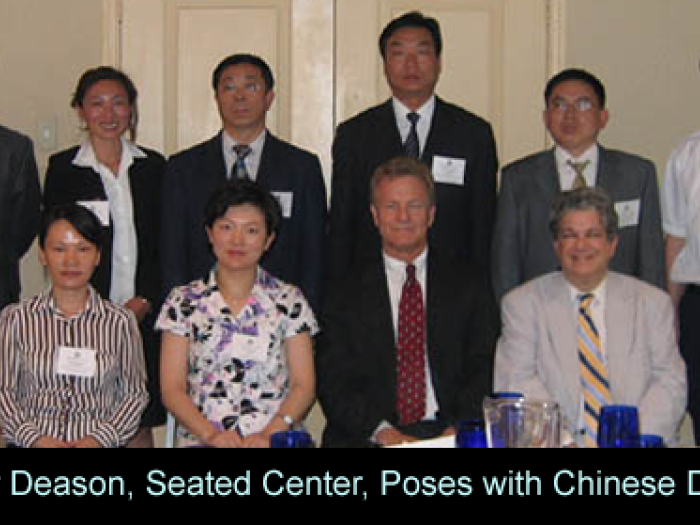
Professor Deason Briefs Senior Chinese Delegation on Sustainable Development and Environmental Protection
November 20, 2009
Professor Deason Briefs Senior Chinese Delegation on Sustainable Development and Environmental Protection
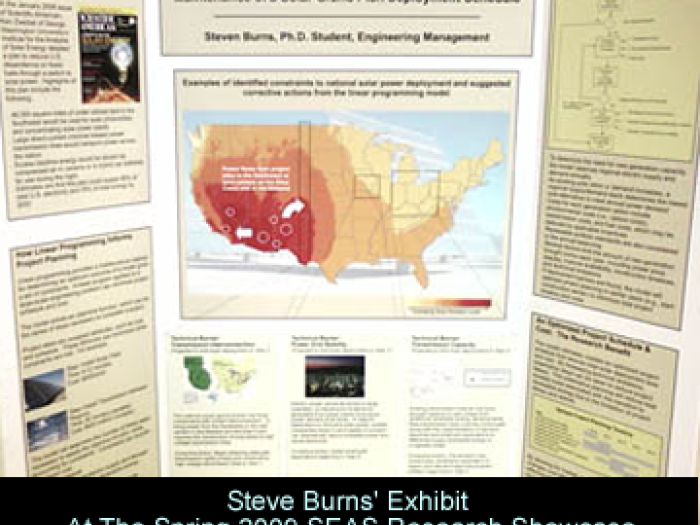
Sponsored Research Projects Get High Marks by Solar Institute
November 20, 2009
Research projects being financially supported by the Institute for the Analysis of Solar Energy, being undertaken by E&EM doctoral students Steve Burns and Ariel Castillo, won strong praise during two quarterly reviews conducted during the Spring 2009 semester.

